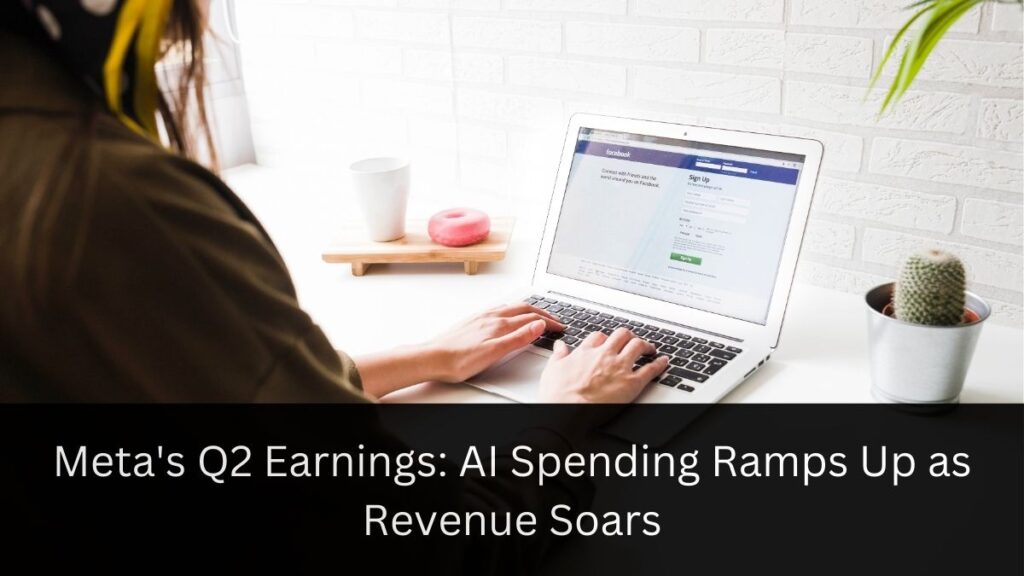In the ever-evolving landscape of technology, Meta continues to make waves with its latest financial report. The company’s second-quarter earnings for 2024 paint a picture of a tech giant confidently striding into the future, balancing its current success with ambitious investments in artificial intelligence (AI).
Revenue Surge Amidst AI Investments
Meta’s financial performance in Q2 has been nothing short of impressive. The company reported a staggering $39 billion in revenue, marking a 22% increase from the previous year. This growth is particularly noteworthy given the current economic climate and the challenges faced by many tech companies.
Even more striking is Meta’s profit margin. The company raked in approximately $13.5 billion in profit, a whopping 73% increase year-over-year. These figures underscore Meta’s financial robustness and its ability to maintain profitability while making substantial investments in emerging technologies.
The AI Conundrum: Short-Term Costs, Long-Term Gains
While Meta’s current financial health is robust, the company is not resting on its laurels. Instead, it’s channeling significant resources into AI development – a move that’s raising eyebrows and questions among investors and industry watchers alike.
During the earnings call, Meta’s CFO Susan Li addressed these concerns head-on. She emphasized that the financial returns from the company’s recent AI investments are expected to “come in over a longer period of time.” This statement reflects Meta’s long-term vision and willingness to prioritize future potential over immediate gains.
Mark Zuckerberg, Meta’s CEO, further elaborated on this strategy. He stated, “It’s hard to predict how this will trend multiple generations into the future, but at this point, I’d rather risk building capacity before it is needed rather than too late.” This approach underscores Meta’s commitment to staying ahead of the curve in the rapidly evolving AI landscape.
Meta’s AI Ambitions: From Assistants to Ad Creation
Meta’s AI initiatives span a wide range of applications, from consumer-facing products to business solutions. Zuckerberg highlighted the company’s goal of making its AI assistant the most widely used in the world by the end of the year. While this might boost user engagement, the real revenue potential lies in business applications.
The company is exploring AI-driven solutions for ad creation and customer service. Imagine AI systems that can generate ads from scratch or AI agents handling customer queries on WhatsApp. These innovations could revolutionize how businesses interact with Meta’s platforms, potentially opening up new revenue streams.
Llama 4: The Next Frontier in AI Models
In a surprising revelation, Zuckerberg announced that Meta is already gearing up to train Llama 4, the next iteration of its large language model. The company aims to make Llama 4 the “most advanced” model in the industry when it launches next year. This ambitious project will require nearly ten times more computing power than its predecessor, Llama 3.1.
This commitment to pushing the boundaries of AI technology demonstrates Meta’s determination to be a leader in the field. It also hints at the scale of investment the company is willing to make to achieve this goal.
Beyond AI: Meta’s Diverse Portfolio
While AI dominates much of the conversation, Meta’s earnings call also touched on other aspects of its business:
- Metaverse and VR: Despite the recent focus on AI, Zuckerberg noted that sales of the Quest 3 VR headset are exceeding expectations. There are also rumors of a more affordable version of the headset being announced at the upcoming Connect conference.
- Smart Glasses: Zuckerberg expressed excitement about building “future generations of AI glasses,” hinting at potential collaborations with eyewear giants like EssilorLuxottica.
- Threads: Meta’s Twitter competitor is gaining traction, with monthly active users approaching 200 million.
- Facebook’s Resurgence: Contrary to popular belief, Zuckerberg claimed that Facebook is growing again among young adults, particularly in the US.
Meta’s Q2 earnings report paints a picture of a company at a crossroads. On one hand, it’s enjoying tremendous financial success, with billions of users across its family of apps. On the other, it’s pouring resources into AI and other emerging technologies, betting big on future returns.
This balancing act between present profitability and future potential is a hallmark of successful tech companies. Meta’s willingness to invest heavily in AI, despite the lack of immediate returns, speaks to its confidence in the technology’s transformative potential.
As we move forward, all eyes will be on Meta to see how its AI investments pan out. Will its AI assistant become the world’s most used? Will Llama 4 revolutionize the AI landscape? Only time will tell. But one thing is certain: Meta is not content with its current success. It’s pushing boundaries, taking risks, and shaping the future of technology. And that, perhaps, is the most exciting takeaway from this earnings report.

